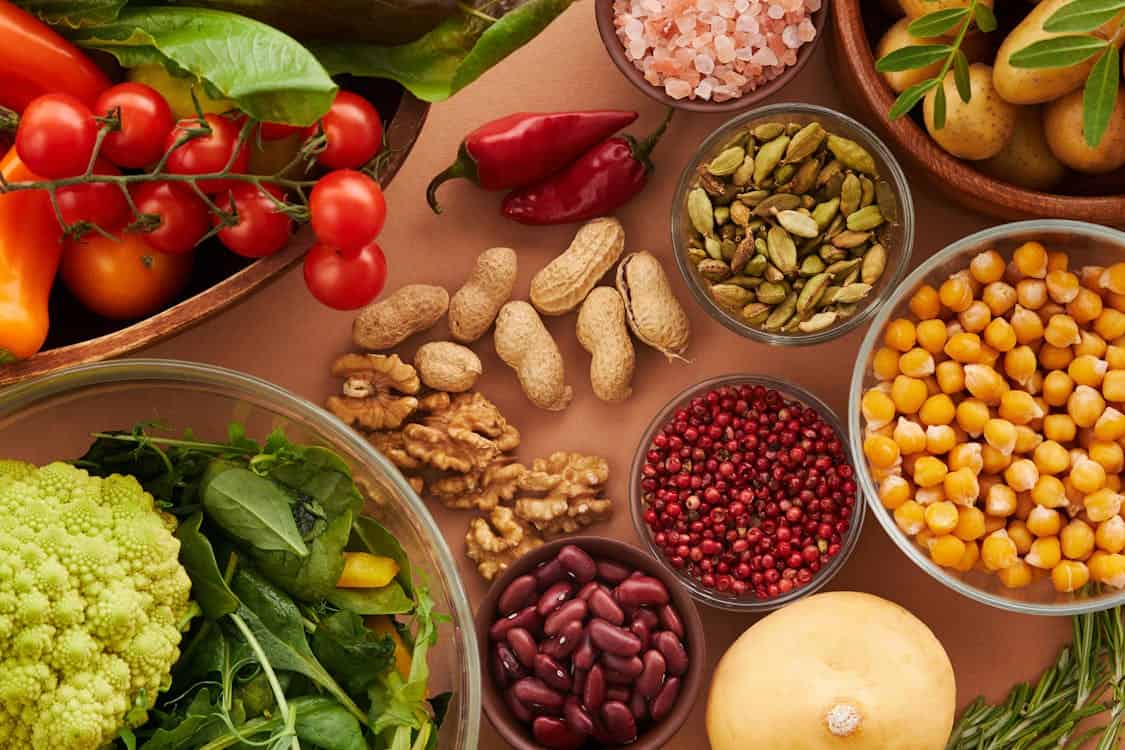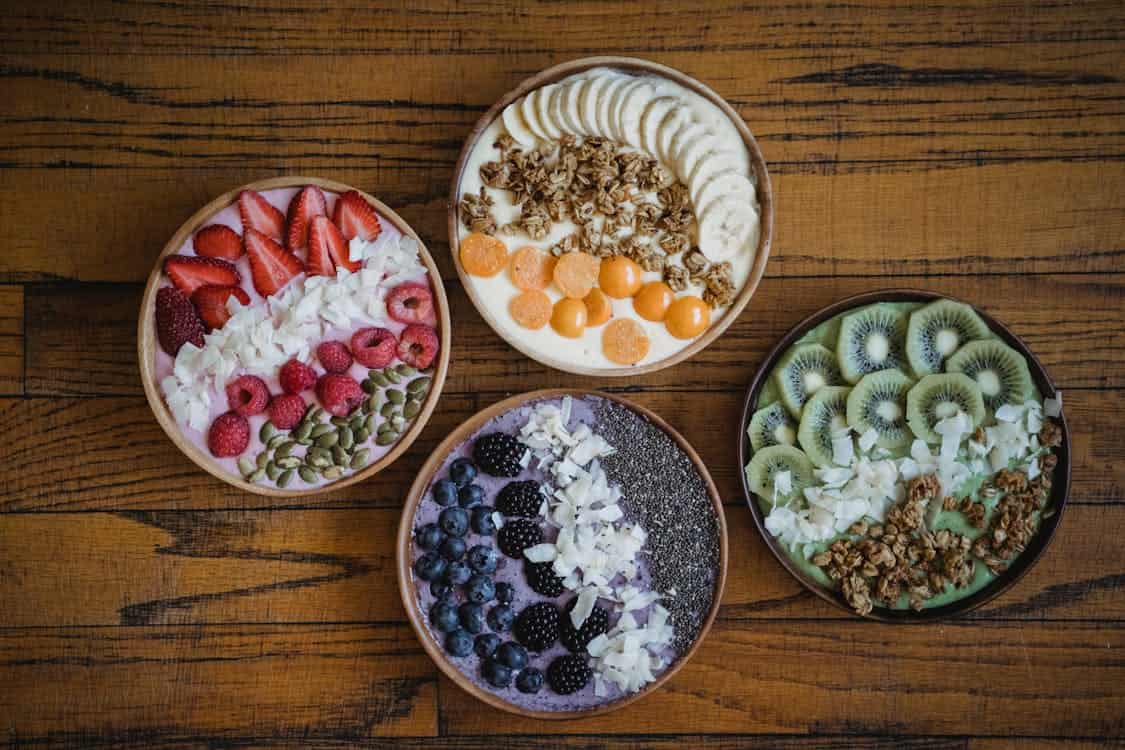Explore the connection between plant-based eating and gut health. This article will delve into the potential vegan diet benefits for digestion, including reduced gut inflammation and improved gut microbiome diversity. We’ll also examine the long-term effects of vegan diet on digestive health and discuss potential concerns, such as “can a vegan diet cause bowel problems?”
Ready to learn more? This comprehensive guide will cover the vegan diet advantages and disadvantages for digestion, explore the question “how long does it take for your gut to adjust to a plant-based diet,” and discuss the broader implications of a vegan lifestyle, including the Benefits of veganism on the environment. Whether you’re considering a long-term plant-based journey or simply curious about the benefits of being vegan for a month, this article will provide valuable insights into how a vegan diet can support a healthy digestive system.

Fiber Power
Fiber is a crucial component of a vegan diet that promotes regularity and overall digestive health. Here are some key points backed by research:
- Increased Fiber Intake: A vegan diet typically includes a high amount of fiber, which is essential for digestive wellness. For instance, participants in the Adventist Health Study-2 who followed a vegan diet consumed an average of 46 grams of fiber daily, significantly higher than the average intake in a standard American diet.
- Types of Fiber: Plant-based foods provide two kinds of fiber: soluble and insoluble. Soluble fiber, found in foods like beans and fruits, dissolves in liquid and feeds beneficial gut bacteria1. It also pulls water into the stool, making it softer and easier to pass. Insoluble fiber adds bulk to stool and helps maintain regular bowel movements.
- Digestive Health Benefits: A study published in the Journal of the American Heart Association found that vegetarian diets, including vegan diets, effectively lowered cholesterol levels and improved heart health. The increased fiber intake from these diets also contributes to better digestive health.
- Weight Management: Research has shown that a vegan diet can help with weight management, which indirectly benefits digestive health. A study involving obese children and their parents found that those following a vegan diet lost more weight and had lower cholesterol levels compared to those on an American Heart Association diet.
- Perceived Benefits: A study conducted among vegetarians and non-vegetarians in the Philippines found that vegetarians perceived their diet to be beneficial for digestion, fiber intake, and overall health. Non-vegetarians also recognized the benefits of a plant-based diet for digestion and fiber intake.
These studies highlight the positive impact of a fiber-rich vegan diet on digestive health and regularity. If you’re considering transitioning to a vegan diet, it’s important to gradually increase your fiber intake to allow your gut bacteria to adjust and minimize any initial digestive discomfort.

Inflammation Fighter
A vegan diet can help reduce inflammation in the gut, promoting overall digestive health. Here are some key points backed by research:
- Gut Microbiota Composition: A study published in Frontiers in Nutrition found that vegan diets promote a more diverse and stable gut microbiota. This diversity is beneficial for gut health, as it includes more beneficial bacteria like Bifidobacterium and Lactobacillus, which have anti-inflammatory effects.
- Anti-inflammatory Components: Vegetarian and vegan diets contain various anti-inflammatory components, such as fiber, polyphenols, and antioxidants. These components help reduce inflammation and support gut health.
- Inflammatory Biomarkers: A systematic review and meta-analysis published in Public Health Nutrition found that vegetarian diets, including vegan diets, are associated with lower levels of inflammatory biomarkers like high-sensitivity C-reactive protein (hs-CRP) and interleukin-6 (IL-6). This suggests that a vegan diet can help reduce chronic inflammation.
- Short-Chain Fatty Acids (SCFAs): High fiber intake from a vegan diet promotes the production of SCFAs, such as acetate, propionate, and butyrate. These SCFAs have various health benefits, including reducing inflammation and supporting gut barrier integrity.
- Protective Health Effects: A review published in Nutrients highlighted that vegan diets are associated with a unique gut microbiota profile, characterized by reduced levels of pathobionts (harmful bacteria) and increased levels of protective species. This unique profile contributes to reduced inflammation and overall health benefits.
These studies demonstrate that a vegan diet can help reduce inflammation in the gut, promoting better digestive health and overall well-being. If you’re considering adopting a vegan diet, it’s important to ensure you’re getting a variety of plant-based foods to maximize these benefits.

Nourishing Your Microbiome
A vegan diet can significantly nourish the gut microbiome, promoting overall digestive health. Here are some key points backed by research:
- Vegans and vegetarians have significantly higher counts of certain Bacteroidetes-related operational taxonomic units compared to omnivores. Fibers, which are non-digestible carbohydrates found exclusively in plants, consistently increase lactic acid bacteria, such as Ruminococcus, E. rectale, and Roseburia, and reduce harmful bacteria like Clostridium and Enterococcus species.
- Plant-based foods are rich in polyphenols and antioxidants, which increase beneficial bacteria like Bifidobacterium and Lactobacillus, providing anti-pathogenic and anti-inflammatory effects.
- A systematic review published in Nutrients assessed the association between vegan and vegetarian diets on gut microbiota composition and human health outcomes. The review found evidence for short- to moderate-term beneficial effects of plant-based diets on gut microbiome composition and biochemical and anthropometric measurements in healthy participants as well as those with obesity, cardiovascular diseases, and rheumatoid arthritis.
These studies demonstrate that a vegan diet can nourish the gut microbiome, promoting better digestive health and overall well-being. If you’re considering adopting a vegan diet, it’s important to ensure you’re getting a variety of plant-based foods to maximize these benefits.

Gentle on the Gut
A vegan diet can be gentle on the gut and promote healthy digestion through various mechanisms. Here are some additional studies and research findings:
- A study published in the Journal of the American Heart Association found that vegan diets are associated with lower levels of inflammatory markers, such as C-reactive protein (CRP) and interleukin-6 (IL-6). Reduced inflammation can lead to a healthier gut environment.
- A study published in Nutrients showed that a vegan diet can improve gut barrier function by increasing the production of short-chain fatty acids (SCFAs) like butyrate, which help maintain the integrity of the gut lining.
- Research published in Frontiers in Nutrition demonstrated that vegan diets promote a more diverse gut microbiota, which is beneficial for overall gut health. A diverse microbiota is associated with better digestion and reduced risk of gastrointestinal disorders.
- A systematic review published in Nutrients found that plant-based diets, including vegan diets, are associated with a lower risk of gastrointestinal disorders such as irritable bowel syndrome (IBS) and inflammatory bowel disease (IBD).
- A study published in MDPI reviewed the effects of plant-based diets on gut microbiota composition and found that vegan diets led to an increase in beneficial bacteria and a decrease in harmful bacteria.
These studies highlight the gentle and beneficial effects of a vegan diet on gut health and digestion. If you’re considering adopting a vegan diet, it’s important to ensure you’re getting a variety of plant-based foods to maximize these benefits.

Hydration Boost
A vegan diet can indeed contribute to better hydration, which is essential for healthy digestion. Here are some studies and research findings that support this:
- A review published in Frontiers in Nutrition highlighted that plant-based diets, including vegan diets, are rich in water-containing foods such as fruits and vegetables. These foods contribute significantly to daily water intake, aiding in hydration.
- A study published in Nutrients found that vegan diets can help maintain electrolyte balance due to the high intake of fruits and vegetables, which are natural sources of essential electrolytes like potassium and magnesium. Proper electrolyte balance is crucial for maintaining hydration and supporting digestive health.
- Research published in Global Vegans emphasized the importance of hydration for gut health. Staying well-hydrated ensures efficient digestion, nutrient absorption, and waste elimination. Plant-based diets naturally promote hydration through their high water content, which supports these processes.
- A systematic review published in Nutrients explored the effects of plant-based diets on gut microbiota and overall health. The review found that adequate hydration, facilitated by a diet rich in fruits and vegetables, plays a vital role in maintaining a healthy gut microbiome and promoting regular digestion.
These studies demonstrate that a vegan diet can be a great way to boost hydration, which in turn supports healthy digestion. If you’re considering adopting a vegan diet, focusing on hydrating foods like fruits, vegetables, and soups can help you stay well-hydrated and support your digestive health.

Supporting Detoxification
Research published in The American Journal of Clinical Nutrition found that high fiber intake from plant-based foods supports detoxification by promoting regular bowel movements and preventing constipation. Fiber helps eliminate waste and toxins from the body, contributing to a healthier digestive system.
A study published in Journal of Agricultural and Food Chemistry demonstrated that certain plant-based foods, such as cruciferous vegetables (e.g., broccoli, kale, and Brussels sprouts), contain compounds that support the liver’s detoxification enzymes. These enzymes help break down and eliminate toxins from the body.

Uncovering Food Sensitivities
A review on detecting food sensitivities and allergies on a vegan diet noted that common sensitivities include nuts, soy, wheat, and seeds. By adopting a vegan diet, individuals may become more aware of these sensitivities and take steps to address them, leading to improved digestive health.
Several companies offer at-home tests for vegan or vegetarian food sensitivities, which check for IgG-mediated food sensitivities to a wide range of plant-based foods. These tests can help individuals identify problematic foods and make necessary dietary adjustments.
How long does it take for your gut to adjust to a plant-based diet?
The time it takes for your gut to adjust to a plant-based diet can vary, but generally, it takes about 2-4 weeks for your body to adapt. Here are some factors that can influence this adjustment period:
- If you were consuming a lot of animal products before, your adjustment period might be longer as your gut bacteria need time to adapt to the new diet.
- A plant-based diet is typically high in fiber, which can initially cause digestive discomfort like bloating or gas. Your gut bacteria will gradually adjust to the increased fiber intake.
- Everyone’s body is different, so the adjustment period can vary from person to person.
During this transition, it’s important to stay hydrated and gradually increase your intake of plant-based foods to help ease the adjustment process. If you experience any persistent digestive issues, it might be helpful to consult with a healthcare professional.
Can a vegan diet cause bowel problems?
Yes, a vegan diet can sometimes cause bowel problems, especially during the initial transition period. Here are some potential issues and tips to manage them:
- Increased Fiber Intake: A vegan diet is typically high in fiber, which can lead to increased bowel movements, bloating, and gas. This is because fiber is not fully digested by the body and is fermented by gut bacteria, producing gas.
- Constipation: While fiber generally helps with regular bowel movements, some people may experience constipation if they don’t drink enough water or if they consume too much fiber without balancing it with adequate hydration.
- Irritable Bowel Syndrome (IBS): Some plant-based foods can trigger IBS symptoms, such as bloating, diarrhea, and constipation. It’s important to identify and avoid trigger foods, which may include certain fruits, vegetables, and legumes.
- Gradual Transition: To minimize digestive discomfort, it’s recommended to gradually transition to a vegan diet. Start by incorporating more plant-based foods while reducing animal products over time.
How long does it take your digestive system to adjust to a vegan diet?
The time it takes for your digestive system to adjust to a vegan diet can vary, but generally, it takes about 2 to 4 weeks for your body to adapt. Here’s a breakdown of what you might experience during this period:
Initial Phase (First 1-2 Weeks)
You might experience bloating, gas, or changes in bowel movements as your body adapts to the higher fiber content of plant-based foods. This is normal as your gut bacteria adjust. It’s essential to stay hydrated to help your body process the increased fiber.
Adjustment Phase (2-4 Weeks)
Your gut microbiota will start to shift, becoming more diverse and populated with beneficial bacteria that thrive on fiber. You’ll likely notice improvements in digestion, such as more regular bowel movements and reduced bloating.
Stabilization Phase (After 4 Weeks)
Your digestive system will have adapted to the new diet, leading to improved overall digestive health. Many people report feeling more energetic and less sluggish after their bodies have adjusted to a vegan diet.
To ease the transition, gradually introduce more plant-based foods into your diet, stay hydrated, and consider taking a probiotic supplement to support your gut health. If you experience any persistent digestive issues, it may be helpful to consult with a healthcare professional.

Ready to Get Started?
If you’re excited to embark on a journey towards better health and well-being, you’re in the right place! Trish Tucker-May offers invaluable resources to help you optimize your diet, improve gut health, and discover the benefits of a plant-based lifestyle. With her expert guidance, you can unlock a new level of vitality and wellness.
Discover the transformative power of Trish Tucker-May’s Time To Nourish Gut Healing Program. This comprehensive, DIY program is meticulously crafted to help you achieve optimal gut health and overall well-being. By following Trish’s expert guidance, you’ll learn how to nourish your gut with the right foods, identify and manage food intolerances, and adopt lifestyle changes that support a healthy digestive system. The program is designed to be accessible and practical, making it easy to incorporate these beneficial practices into your daily routine.
Trish’s courses are designed to be accessible, informative, and practical, empowering you to take control of your health. Whether you’re looking to make small changes or completely transform your diet, Trish provides the support and knowledge you need to succeed.
Ready to get started on your health journey? Head over to Trish’s Website and explore her offerings today!
Final Thoughts
Embracing a vegan diet can offer numerous benefits for your digestive health and overall well-being. If you’re curious about vegan recipes, meal plans, or further tips on adopting a vegan lifestyle, don’t hesitate to reach out. I’m here to help you every step of the way. Enjoy the journey to better health and a more sustainable lifestyle!
Would you like any specific resources or recipes to get started? 🌿🍏🥦




